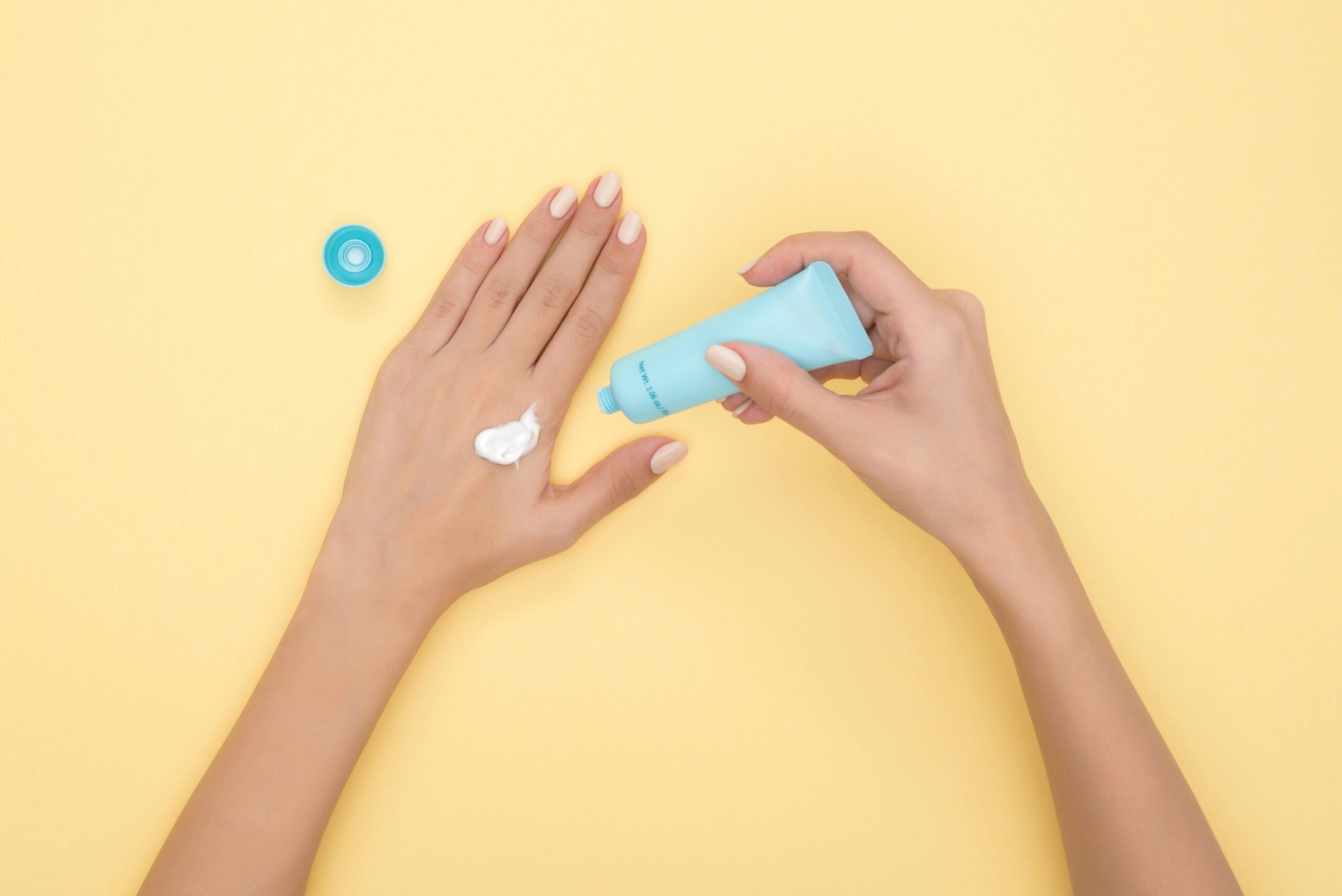
Why Is My Skin So Dry Even When I Moisturize?
You’re not alone if you’re diligently applying moisturizer morning and night yet still dealing with tight, dehydrated, flaky, or itchy skin. The mystery of persistent dry skin despite regular moisturizing can be frustrating. Our dermatologists in Jupiter bring you some common reasons why your moisturizer may not be effective and how to achieve lasting hydration.
Your Moisturizer Is Too Light
Often, the issue lies in using the wrong product for your skin type. Light moisturizers and lotions usually contain a lot of water, lacking the lipids (fats, oils) necessary to lock in moisture. Dry skin benefits more from heavier creams like Eucerin Original Healing Cream or CeraVe Moisturizing Cream. For hands, consider a dedicated hand moisturizer such as Eucerin Advanced Repair Hand Cream. Opt for fragrance-free products, as fragrances can irritate dry, sensitive skin. Avoid “unscented” products as they might contain chemicals that mask other ingredients’ smells.
You Need to Exfoliate
A buildup of dead skin cells can prevent your moisturizer from penetrating properly. Regular exfoliation with a mild chemical exfoliant, such as salicylic acid, glycolic acid, or lactic acid, can help. Use an exfoliating face or body wash once or twice weekly to slough off dead cells.
You’re Moisturizing at the Wrong Time
While there’s no wrong time to apply moisturizer, the most effective time is right after you pat yourself dry from a shower or bath, while your skin is still slightly damp. This helps seal in moisture.
Your Wrinkle Cream or Acne Treatment Is Drying Out Your Face
Retinol products and prescription retinoids like tretinoin can cause dryness and flakiness by speeding up the skin’s natural exfoliation process. Start with lower-dose products and consult your dermatologist about the right anti-wrinkle product for you. They can also advise whether to apply moisturizer before or after these treatments. Topical acne treatments can also dry your skin, so discuss the best options with your dermatologist.
Your Habits Are Robbing Your Skin of Moisture
Long, hot showers can strip your skin of moisture. Keep showers short (less than 10 minutes) and use warm water instead of hot. If you don’t sweat a lot, consider showering less frequently. Other habits that can dry out your skin include using harsh soaps, and toners, wearing tight clothes, smoking, and swimming in chlorinated pools.
You’re Getting Older
As you age, your skin’s sebum (oil) production decreases, making it harder to keep your skin hydrated. Switching to heavier creams or ointments can help maintain hydration and reduce the appearance of fine lines.
You Have Certain Skin Conditions or Health Issues
Conditions like eczema, contact dermatitis, and psoriasis can cause dryness and flaking. Other health issues like diabetes, hypothyroidism, lymphoma, and kidney failure can also affect skin moisture. Consult your doctor for advice on managing these conditions.
You Take Medications That Dry Out the Skin
Dry, peeling skin can be a side effect of many medications, including Accutane, beta-blockers, hormonal birth control, cholesterol-lowering statins, diuretics, and chemotherapy drugs. Using a thicker moisturizer or switching to an ointment can help mitigate these effects.
You’re Deficient in Certain Nutrients
Nutrient deficiencies, such as vitamin A, vitamin D, iron, niacin, or zinc, can lead to stubborn dryness. Talk to your doctor about potential deficiencies and the need for supplements. Extreme calorie restriction due to anorexia can also deprive the skin of essential nutrients.
You’re Frequently Exposed to Dry Air
Cold, dry air, forced air heating, and air conditioning can all sap moisture from your skin. Using a heavier cream or ointment and running a humidifier in your home can help combat dry air.
By identifying and addressing these common issues, you can achieve healthier, more hydrated skin.

